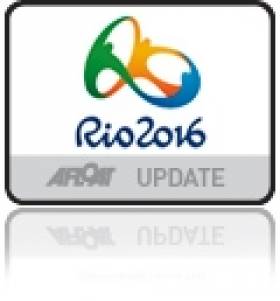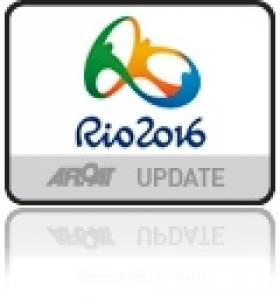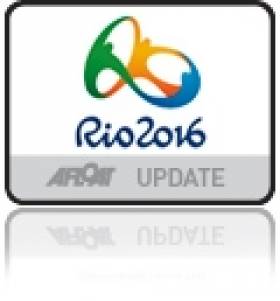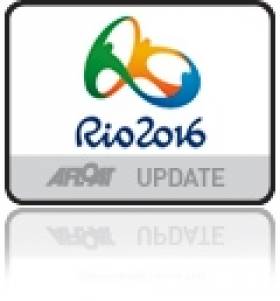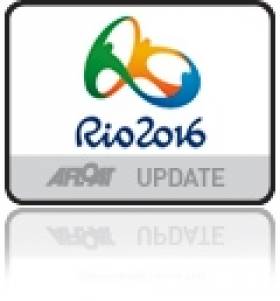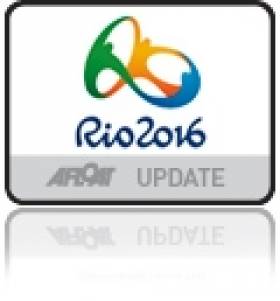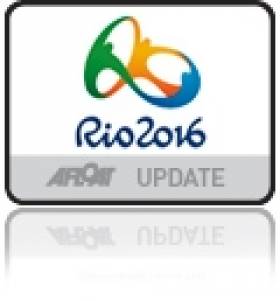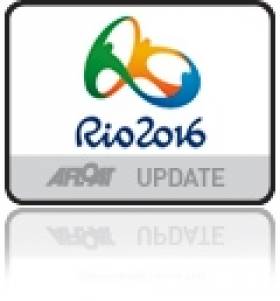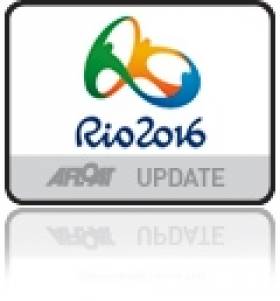Displaying items by tag: Rio 2016
#Rio2016 - Despite seeing "significant progress", International Olympic Committee officials have again expressed concerns over the readiness of Rio's sailing waters for next summer's Olympic Games amid controversy over pollution levels in Guanabara Bay.
As Euronews reports, city officials have been consolidating their clean-up efforts in competition areas despite those parts of Guanabara Bay being already declared safe by Rio 2016 organisers.
IOC president Thomas Bach said yesterday (Monday 8 June) in Lausanne that the committee's executive is "watching this situation very closely and we are expecting more information and more reports by the time of our next meeting, next month in Kuala Lumpur."
The latest news comes a month after Brazilian officials hurried to quash fears over water quality for competing sailors with a PR stunt that failed to impress local journalists – not to mention the ISAF's own concerns for the safety of its athletes.
In the meantime, as city officials continue to play catch-up, local community groups have taken up the slack with their own grassroots clean-up effort.
"Civil society is stepping forward where the government has failed," writes Shanna Hansbury in the Guardian. "From all corners of Rio de Janeiro, people are working towards the lasting legacy they were promised.
"Fishermen are reporting environmental crimes, engineers are developing new technologies, biologists are replanting mangrove swamps, and sailors are operating eco-boats to remove floating rubbish."
The Guardian has much more on the story HERE.
#Rio2016 - Brazil has hurried to squash growing fears over the safety of sailing waters for next summer's Rio Olympics – but one state official's dip in Guanabara Bay hasn't stemmed the backlash.
The Associated Press reports on the "televised stunt" last week that saw environmental secretary Andrea Correa dive into the waters where sailors are expected to race just over a year from now.
In the footage recorded for the news magazine show Fantastico – which previously aired a report highly critical of Rio's failure to fulfil its promises to clean up the notoriously polluted Guanabara Bay – Correa compared its waters to the popular beaches of "Ipanema or Barra".
But the PR exercise did not impress the Fantastico team, who stressed in their programme that the official selected the time and place for his dip, at high tide near the mouth of the bay in cleaner ocean water.
Commenting on the story at the Royal Cork YC website, Peter Webster – a chemist with the Environmental Protection Agency (EPA) – repeated concerns that Rio's sailing waters fall far short of European bathing water quality standards.
"For our Olympic competitors... these standards should be being demanded by the ISA or the relevant swimming national bodies," he says. "From the evidence I’ve seen of pollution in Guanabara Bay there is no way that water-sports of any kind should be being held there."
The ISAF has already suggested it could make a formal call to move Olympic sailing out of the city for the safety of athletes.
#Rio2016 - Annalise Murphy, James Espey, Ryan Seaton and Matt McGovern are already Rio-bound - but could their sailing venue at the 2016 Olympics be moved out of Guanabara Bay?
That's what the sport's world governing body has threatened to do if city authorities don't clean up their act, according to the Associated Press.
As previously reported on Afloat.ie, local Olympic officials have confirmed that the notoriously polluted waters of Brazil's largest city will not be fully cleaned as promised in time for next summer's Olympiad.
The sailing venue was slammed as "absolutely disgusting" by Irish Olympic sailing coach Ian Barker on a visit to Rio at the end of 2013.
Yet while hopes remained in the interim that city officials would make good on their assurances of safe and clean waters for sailors, those have been dashed in recent weeks – with safety concerns over floating rubbish and the discovery of a new 'super-bacteria' in one of the many sewage-filled rivers that flow into the bay.
That's not to mention similar worries over the venue for rowing and canoeing at the Rodrigo de Freitas Lagoon – recently the site of an extensive fish kill.
The situation has now prompted the ISAF to call on the International Olympic Committee (IOC) to step up the pressure on Brazil's politicians, with the sailing body's Alastair Fox claiming he and fellow officials were "frustrated with it all".
In a phone interview with the AP's Stephen Wade, Fox said: "We are going to review the situation and make some more recommendations – demands is probably the right word – to make sure things are done."
The ISAF's head of competitions also suggested that "if we have to race all the races outside the bay, if that's what it comes to, to ensure a fair regatta, then that's something we're going to explore and could do."
The AP has much more on the story HERE.
#isafsailingworldcup – After four days of red hot ISAF World Cup competition – in conditions similar to those expected next year for the Olympic regatta itself – three Irish campaigns are regrouping after less than stellar results on the French riviera. The sailors will review performances ahead of the Delta Lloyd Regatta which takes place in Medemblik, Netherlands next month. In a tough outcome, (given the achievement of two Irish medal race finishes in Palma earlier this month) there was no Irish participation in any of the ISAF Sailing World Cup Hyères medal races yesterday, ironically in the first real breeze of the week. It would have suited Dun Laoghaire's Annalise Murphy who finished up 30th out of 40. The Belfast 49er campaign of Ryan Seaton and Matt McGovern, silver medal winners in Hyeres last year, were 24th from 40. The 49erfx of Andrea Brewster and Saskia Tidey was 26th.
Next month's Delta Lloyd Regatta acts as the qualification regatta for ISAF Sailing World Cup Weymouth and Portland which takes place at the London 2012 Olympic Sailing Competition venue from 8-14 June. Delta Lloyd regatta also acts as an Irish trial for the men's Laser. Belfast's James Espey and Dun Laoghaire debutante Finn Lynch are to face each other in the trial for a place at the Rio test event known as 'Aqueece Rio' in August.
The fan was turned up for the final day at ISAF Sailing World Cup Hyères as an exciting finale played out across two racing areas.
18-20 knots of breeze ensured the regatta concluded with thrills and spills aplenty. Seven races unravelled on the live broadcast area – click above vid for a full replay – whilst a further three concluded nearby.
Across the ten Olympic disciplines, ISAF Sailing World Cup Hyères medals were awarded, a share of the €72,000 was distributed and ISAF Sailing World Cup Final spots were picked up.
49erFX
Last on the race track on the final day, the 49erFX provided a blockbuster conclusion.
Big breeze and big waves tested the 49erFX sailors and there were some thrills, spills and close shaves in a testing race.
One point split overnight leaders Martine Grael and Kahena Kunze (BRA) and Denmark's Ida Marie Baad Nielsen and Marie Thusgaard Olsen coming into the day.
Following a clear start and intriguing upwind leg, the first mark saw the Danes hold the advantage, getting clear air in their sails. However a close rounding saw the Brazilians touch the mark resulting in a penalty turn and from there they were always playing catch up.
The Danes were able to edge away ensuring an uphill battle for the Brazilians. Pushing their 49erFX to its limits Grael and Kunze lost a bit of control on the second downwind but expertly held it together, with Grael hanging out of the boat yet keeping it upright.
Meanwhile the Danes were never under great pressure, working through the motions and despite being pipped to the Medal Race win by compatriots Jena Hansen and Katja Salskov-Iversen (DEN) they claimed gold by seven points over silver recipients Grael and Kunze.
"We had a really good race," commented the pair almost in tandem. "We kept calm throughout the course and that was important in these conditions.
"We kept it simple, without pressure and sailed fast."
Giulia Conti and Francesca Clapcich (ITA) held on to bronze after a fifth. After racing Conti said, "We made a few mistakes so we're a little disappointed but we're happy because we had good boat speed and handling. We are happy with bronze. It means a lot to us. After silver in Miami it's important for us."
Top Three
1 - Ida Marie Baad Nielsen and Marie Thusgaard Olsen (DEN) - 87
2 – Martine Grael and Kahena Kunze (BRA) – 94
3 – Giulia Conti and Francesca Clapcich (ITA) – 99
Women's 470
It was a winner takes all scenario in the Women's 470 with any of the top four capable of taking gold.
Fernanda Oliveira and Ana Luiza Barbachan (BRA), Hannah Mills and Saskia Clark (GBR), Jo Aleh and Polly Powrie (NZL) and Camille Lecointre and Helene Defrance (FRA) were all in the running with the capabilities to command and conquer.
In a close, exciting race Medal Race Brazil's Oliveira and Barbachan came out of the blocks with intent and led at the first mark. They made some gains on the downwind but had Japan's Ai Kondo Yoshida and Miho Yoshioka for company on the second lap. The Japanese pair passed the Brazilians to take the bullet but it was irrelevant as the Brazilians were well clear of their rivals and finished in second to take gold.
"The points were so close," explained Oliveira. "We thought that we must do our job and sail our own race. We thought about the points and the other boats but we just focused on us. It was perfect. We finished second in the race and we're so happy.
"It was our goal to win here and we worked very hard for this and we got it. It's amazing, we're so happy."
Aleh and Powrie came through in third in the Medal Race to move up into silver medal position. "It's a great way to finish," commented Aleh. "It's been a tough week. The Brazilians have been great all week and it was an exciting Medal Race with us all fighting it out."
Camille Lecointre and Helene Defrance (FRA) followed behind the Kiwis and clinched bronze. Hannah Mills and Saskia Clark (GBR) missed out on the podium by a single point.
Top Three Women's 470
Fernanda Oliveira & Ana Luiza Barbachan (BRA) – 45
Jo Aleh & Polly Powrie (NZL) – 53
Camille Lecointre & Helene Defrance (FRA) – 54
Men's 470
It was clear for all to see that Sime Fantela and Igor Marenic's (CRO) winter training paid off. The pair ended came into the Medal Race 25 points clear of Luke Patience and Elliot Willis (GBR) to claim the gold medal a day early.
Fantela and Igor got off to a great start in the windiest and roughest sea state that the competition had seen all week to finish seventh in the fleet, ending the ISAF Sailing World Cup Hyères on an impressive 40 points.
The fight for second and third place however was much less certain.
Mat Belcher and Will Ryan (AUS) rounded the first mark in pole position. They held their lead throughout the race and went on the claim the Medal Race victory which handed them silver. Luke Patience and Elliot Willis (GBR) finished just four points behind the Australians in third place.
Top Three
1 – Sime Fantela & Igor Marenic (CRO) – 40
2 – Mat Belcher & Will Ryan (AUS) – 55
3 – Luke Patience & Elliot Willis (GBR) – 59
Women's RS:X
Lilian De Geus (NED) booked her ticket to the Rio 2016 Olympic Games and the Abu Dhabi World Cup Final by taking gold in the Women's RS:X.
The Dutch sailor had a solid advantage heading into the Medal Race and knew a good performance would seal the deal. She put on an outstanding show in the Medal Race and established a commanding lead on the final downwind.
She pulled away to take her first race win of the week, ending 11 points clear of Charline Picon (FRA).
It was a high scoring affair in the Women's RS:X with ups and downs aplenty.
Picon came through in second in the Medal Race to take silver, a result she was pleasantly surprised with, "If you had said to me three days ago 'you'll win silver this week' I would have said that it was impossible but I'd never give up.
"I never gave up, I tried to fight and I'm happy because I have silver but I'm not happy about my week as I had a lot of bad races."
Patricia Freitas (BRA) pushed Picon hard in the Medal Race in an attempt to overthrow her but at the penultimate rounding she misjudged the layline which allowed the French sailor to pass. Nonetheless Freitas came through in third, taking bronze.
Top Three
1 - Lilian de Geus (NED) – 90
2 - Charline Picon (FRA) – 101
3 - Patricia Freitas (BRA) – 104
Men's RS:X
A competition made up of the world's most skilled male windsurfers was always going to be a tough challenge for all competitors. Throughout the week there have been many ups and downs with multiple race winners.
France's Pierre Le Coq started the day knowing that he would take home a medal. The Frenchman entered the Medal Race at the top of the leaderboard with a 15 point lead. An eighth or better would seal the deal and Le Coq finished in seventh to wrap up gold.
Piotr Myszka (POL) was on top form in the big breeze, coming second to take silver whilst a fourth for Byron Kokkalanis (GRE) saw him drop into bronze medal position.
Louis Giard (FRA) revelled in the big breeze and took the Medal Race win. With three race victories, Giard recorded the most out of any racer but was not consistent and ended up eighth overall.
Top Three
1 – Pierre le Coq (FRA) – 74
2 – Piotr Myszka (POL – 81 –
3 – Byron Kokkalanis (GRE) – 83
Finn
Great Britain's Giles Scott had gold all but wrapped up in the Finn and a Medal Race bullet confirmed his place at the top of the pack.
Scott has controlled the week with a discarded 24th his only result outside of the top ten and he was pleased with his performance, "Taking the event and the Medal Race win is a great way to round up the regatta, especially when it is my first win in Hyères.
"This was not an easy regatta. The conditions were super difficult with light and shifty winds for most of the week so the result is very rewarding."
Vasilij Zbogar (SLO) gave himself a huge chance of taking a medal following double bullets on the penultimate day. He followed this up with a third in the Medal Race to hold on to silver.
Great Britain's Ed Wright finished the Medal Race in eighth which was enough to hang on to bronze on 75 points. A fifth from Zsombor Berecz (HUN) left him three points off bronze medal position.
Top Three
1 - Giles Scott (GBR) – 38
2 - Vasilij Zbogar (SLO) – 62
3 - Ed Wright (GBR) – 75
Laser
An overnight protest significantly altered the Laser leaderboard.
The results before the protest saw Tonci Stipanovic (CRO) but a solid lead over Tom Burton. However, during the final fleet race Stipanovic pushed Burton off of the proper course and gained a significant advantage as a result. Following the protest, Stipanovic was scored a non discardable 41st having infringed Tom Burton (AUS). The Australian received 21 points following a redress.
Burton came into the day leading on 45 points, followed by Nick Thompson (GBR) on 47 points. Rutger van Schaardenburg (NED) and Nicholas Heiner (NED) followed on 57 points with Robert Scheidt (BRA) on 58. Stipanovic, meanwhile, was down the pack on 75 points.
The race commenced in a good breeze and Heiner was over the line early and disqualified ensuring he dropped out of the running.
Charlie Buckingham (USA) came out strongly and grabbed the lead. He was closely followed by Burton and the pair jostled at the front of the pack.
Buckingham had the best of the back and forth exchange, taking the bullet. Burton followed 11 seconds behind to claim gold much to his delight as he hit is Laser with a mixture of relief and frustration after a tough week.
With Heiner out of the running it was between Thompson, van Schaardenburg and Scheidt for the remaining medals.
Thompson remained in control and picked up a fifth to take silver. Scheidt kept van Schaardenburg at bay to finish fourth, claiming bronze.
Top Three
1 – Tom Burton (AUS) – 49
2 – Nick Thompson (GBR) – 57
3 – Robert Scheidt (BRA) - 66
Laser Radial
Evi Van Acker (BEL) made it look easy in the Laser Radial taking out the Medal Race bullet to win by 21 points.
It was all on for the remaining podium spots between Gintare Scheidt (LTU), Josefin Olsson (SWE) and Anne-Marie Rindom (DEN).
Scheidt ventured into the Medal Race on 38 points with Rindom on 44 and Olsson on 46.
Whilst Van Acker ran away with the victory Olsson gritted her teeth and got down to business. Pushing hard throughout the race she finished second, doing all she could have possibly done, having started the day in fourth overall.
Olsson had an anxious wait to see where she would finish overall and she witnessed Rindom coming through in fourth followed by Scheidt in fifth. As a result Olsson leapfrogged Rindom but it was not enough to overhaul Scheidt who claimed silver.
Top Three
1 – Evi Van Acker (BEL) – 25
2 – Gintare Scheidt (LTU) – 48
3 – Josefin Olsson (SWE) – 50
49er
Peter Burling and Blair Tuke (NZL) and Nathan Outteridge and Iain Jensen (AUS) had gold and silver wrapped up in advance of the Medal Race but there was a fight on for bronze.
The advantage ahead of the day was with David Gilmour and Rhys Mara (AUS). They had an eight point advantage over Germany's Erik Heil and Thomas Ploessel and were in control for the first 50% of the race. However, on the second downwind disaster struck for Gilmour and Mara as they capsized and lost their third position.
The Australians dropped down the pack and came through in ninth. The Germans capitalised on the Australians misfortune, coming through in fourth to steal bronze.
Top Three
Peter Burling & Blair Tuke (NZL) – 49
Nathan Outteridge & Iain Jensen (AUS) – 98
Erik Heil & Thomas Ploessel (GER) – 144
Nacra 17
Billy Besson and Marie Riou (FRA) stylishly sealed gold and an Abu Dhabi Final spot in the Nacra 17 by winning the Medal Race in convincing fashion.
The French team have been dominant in the Nacra 17 and had gold wrapped up in advance of the Medal Race. Besson and Riou got off to a blistering start and were able to grab an early advantage over the pack and never looked back, taking the bullet by 14 seconds over Mandy Mulder and Coen de Koning (NED).
"We're feeling good," smiled Besson, "It's a great day and it's great to win the Medal Race and finish the week off like that.
"It was really important for France to win here and everybody, including me, is really proud."
A real battle was on behind the French team between the two boats from the Netherlands with Rio 2016 Olympic selection on the line.
Mandy Mulder and Coen de Koning (NED) brought in an advantage from Trofeo Princesca Sofia and confirmed their spot by finishing second in the Medal Race and second overall. "We've qualified for the Olympics for sure," smiled de Koning.
Mulder added, "This whole week has been a good learning curve for us. We had some difficult conditions with moderate to light winds. The first day was really hard. We had some results in 20s and we learnt a lot and how to come back. We performed well in the next days and we'll take that with us."
Renee Groeneveld and Steven Krol (NED) pushed their compatriots throughout the week but couldn't quite overhaul them picking up bronze.
Top Three
1 - Billy Besson & Marie Riou (FRA) – 57
2 - Mandy Mulder & Coen de Koning (NED) – 84
3 - Renee Groeneveld & Steven Krol (NED) – 98
Sailors will now regroup and review ahead of the Delta Lloyd Regatta which takes in Medemblik, the Netherlands from 26-30 May 2015. The Delta Lloyd Regatta acts as the qualification regatta for ISAF Sailing World Cup Weymouth and Portland which takes place at the London 2012 Olympic Sailing Competition venue from 8-14 June.
The world's best 40 Olympic and Paralympic sailors will put their skills to the test once again in Weymouth and Portland, Great Britain with World Cup honours and Abu Dhabi Final places on the line.
Dead Fish Clog Rio Olympics Rowing Venue
#Rio2016 - If you thought the news about Brazil's sailing waters for next summer's Olympic Games was bad, TheJournal.ie brings us a dire tale from the Rodrigo de Freitas Lagoon that's set to host rowing events for Rio 2016.
Going by its latest condition, with a fish kill incident resulting in many thousands of twaite shad clogging up the lake, there isn't much rowing or canoeing to be done at present.
Local photographer Alex Moutinho described the fish die-offs that occur on an annual basis as "one more Brazilian shame" - coming after news of a collision with floating rubbish at the sailing venue in Guanabara Bay that's renewed concerns for athletes' safety on the water.
TheJournal.ie has more on the story HERE.
Rio Sailing Waters Crash Renews Concerns Over Floating Rubbish
#Rio2016 - The safety of Olympic sailors training and competing in Rio's dirty waters has been called into question after a 49er pair crashed into a floating object in recent weeks.
As Yahoo! News reports, Breno Osthoff and Rafael de Almeida Sampaio were training on 14 February in Guanabara Bay – the location for the sailing courses in next summer's Olympiad – when they crashed into a discarded plastic box of the kind used to transport fish.
Video of the incident, which captured the duo's boat slamming into the box and causing their dinghy to list, will only add to the chorus of disapproval over the host city's failure to fulfil its promises to clean up its heavily polluted waters.
"The impact broke the keel, damaged the hull, and as we turned we fell on top of the sails and scraped the two sails," said Osthoff of the incident earlier this month. "The damage was very significant and it is just unacceptable."
Yahoo! News has more on the story HERE.
Rower Of The Year Sanita Puspure Gives Update On Her Road To Rio
#Rio2016 - Afloat's Rower of the Year for 2014 Sanita Puspure has her sights set on the European Championships next month, the next big step towards qualification for the Rio 2016 Olympic Games.
In the latest update on her progress for the Olympic Council of Ireland, the single sculls rower and scholarship athlete – who competed for Ireland at London 2012 – did not have the best performance at her most recent regatta in Italy due to illness.
But the last few months of training, following a few setbacks, have gone "really well" – and the training continues towards the World Championships coming in August, at which only nine rowers will qualify for Rio.
"We are going to test ourselves in the World Cup 3 in Switzerland in July before we head to fight for qualifying places," she says. "But in the meantime it's a 'one step at a time' approach. Training hard, dreaming big."
Rio's Sailing Waters Won't Be Clean For 2016 Olympics
#Rio2016 - Olympic officials have confirmed that Rio's sailing waters will not be fully cleaned up in time for next summer's Games.
According to Reuters, the Brazilian Olympic Committee (BOC) announced at a press conference last week that only the sailor's lanes in Guanabara Bay would be cleared of floating rubbish and not the whole body of water.
The statement back-pedals on their previous commitment, part of their bid for the 2016 Games, to reduce pollution by 80% in waters described as "absolutely disgusting" by Irish Olympic sailing coach Ian Barker.
BOC head Carlos Guzman declared that the "area of competition for the Olympic Games will be ready... Our obligation is to deliver the area for competing during the Games."
The announcement comes not long after a programme to retrieve flotsam and jetsam from the notoriously polluted waters was halted by city officials.
Rio has announced a "review" of that programme, but it's not yet known whether it will employ technology developed by Dutch researchers to help focus clean-up efforts in the worst affected areas of the bay.
It's also not clear what measures officials will take over the emergence of a new 'super-bacteria' in the city's waters, fed by a number of heavily polluted rivers and raw effluent streams.
Rio Turns To Tech To Fight Water Pollution Problem
#Rio2016 - Rio is turning to Dutch researchers for help in combating its water pollution problems that continue to cause concern for the Olympic sailing fleet.
As the Associated Press reports, water research foundation Deltares has developed technology using data collected from both weather and water conditions to predict areas where litter accumulates, allowing Rio authorities to focus their clean-up efforts more efficiently.
It comes some days after a programme to retrieve floating rubbish from the sailing venue in Guanabara Bay was halted by city officials, reviving fears that Rio's 'dirty water problem' will not be solved in time for the 2016 Games.
Objects floating in the water have been cited as a major cause of concern by both Olympic and world sailing organisers, but water-borne contaminants have also been highlighted.
Last December news emerged of a newly discovered 'super-bacteria' that could pose a significant threat to health at next year's Summer Olympics for competitors like Annalise Murphy, James Espey, Ryan Seaton and Matt McGovern who have already nabbed their spots and will be training in Rio's "absolutely disgusting" waters ahead of the Olympics.
The Associated Press has much more on the story HERE.
Irish Sailing Becomes Third Best Funded Olympic Sport
#sailing – Irish Sailing is going to benefit from just under €1m in government funding in 2015, similar to 2014, but where sailing has made big gains is in the High Performance area. €250,000 for equipment for Rio, and €70,000 for Rio preparation were among the bonuses announced by the Minister today.
Sailing was in the top 10 of Irish sports in general funding, third in the High Performance funding, second in the Rio preparation funding and first in the HP equipment funding.
Total funds to sailing in 2015 from government sources is scheduled to be €1,289,900
By way of contrast, UK amounts are reported to be €33m over the four year Olympiad, while US has about €14m in the same time and Canada will benefit from about €700,000 in 2015.
However, it should be noted that Ireland is only supporting five of the 10 Olympic sailing disciplines, while UK and USA have full teams. And with a smaller pool, it could be argued that the Irish sailors are close to being among the best funded in the world right now. But such a suggestion would be 'completely misleading' as the Irish Sailing's High Performance manager James O'Callaghan points out; 'the programme funds cover 103 sailors involved from Optimist all the way up to the Olympics, not just the Olympic team itself'. 'At each stage of the pathway we have squads and coaches in place to help the sailors progress'.
O'Callaghan continues: 'We are very grateful for the ISC support but we still require additional sources of revenue to ensure our sailors have the best chance of success'.
Amount per discipline per year
UK €825,000 (10 disciplines)
US €350,000 (10 disciplines)
Ireland €257,800 (5 disciplines)
Canada €140,000 (5 disciplines)
There was huge success for Irish Sailing when Minister of State for Sport, Michael Ring T.D., today announced an investment package of €19.6m from the Irish Sports Council into the National Governing Bodies of Sport in Ireland.
The good news for sailing follows a similar announcement by the ISA this week that it intends to raise a further €2.75m itself to further fund the Irish Olympic sailing team.
Overall, The government is spending almost €1million more on sport than the equivalent figure for 2014. This will allow the Council invest in crucial projects for Rio 2016, exciting participation initiatives with a variety of sports and support the participation of Team Ireland at the Special Olympic Summer Games in LA in July.
The investment includes an allocation of €10.85 million to 59 National Governing Bodies (NGBs) to support their core work of administration and participation programmes. This includes increases to support specific initiatives in the IABA, the Confederation of Irish Golf and Hockey Ireland. The Council will allocate €600,000 to support the Women in Sport programme of 23 NGBs with additional support for the highly successful programmes of Swim Ireland and Badminton Ireland.
€8.16m will be invested in 22 Performance Plans which will support Ireland participation at the 2016 Rio Olympic and Paralympic Games. The high performance NGBs also benefit from the direct service provision at the Institute of Sport, the development of high performance facilities at the National Sports Campus, the 2015 International Carding Scheme and the special sports equipment grants; a comprehensive and integrated package of support for Ireland's top performers.
Speaking at today's announcement Minister Ring commented: "I am delighted to be here today to announce a very significant package of sports investment by the Irish Sports Council. Today's investment is a substantial commitment from the Irish Government to the National Governing Bodies of Sport in Ireland. The importance of sport cannot be understated. Sport has the unique ability to activate local communities through participation and volunteerism whilst uniting a nation to support our athletes on the world stage".
Today's investment is designed to support NGBs develop sustainable and effective structures that facilitate increased numbers of both participants and volunteers. The success of the sustained investment has seen considerable growth in membership across the NGB sector which includes 53,000 in Athletics Ireland, 23,000 in Cycling Ireland and 57,000 in Badminton Ireland.
Speaking at the announcement, Kieran Mulvey, Chairman of the Irish Sports Council said:
"The Council place National Governing Bodies at the centre of our work and are the strategic heart of Irish sport. This is a major input of resources into their operations and ongoing development and we have confidence that there will be a significant return on that investment. I want to acknowledge and recognise the on-going support given to us by Minister Ring and his Department which allows us to continue our mission of increasing participation and enhancing high performance."
2015 is the 10th Anniversary of the Irish Sports Council's Women in Sport programme. The programme, which aims to raise the overall physical activity levels among women, has been a key driver in closing the gender gap as women's participation has grown from 39% (2011) to 42.7% (2013). Today's investment will continue to support Women in Sport programmes including 'The Swim for a Mile' initiative from Swim Ireland which aims to deliver 10,000 participants and Rowing Ireland's, 'Get Going, Get Rowing' programme which aims to get an additional 5,000 women participating in 2015.
Ireland will be proudly represented at many sporting events on the international stage. 2015 will be the crucial qualifying year for many sports for Rio 2016 and there will be vital championships events in athletics, swimming, boxing, hockey, cricket and cycling amongst others. The first European Games will take place in Baku in June and it will be could prove to be a pivotal event for the Olympic sports in Ireland. The Council is delighted to support Team Ireland at the Special Olympics World Game in Los Angeles.
John Treacy, CEO Irish Sports Council said:
"As the 2016 Rio Olympic and Paralympic Games come into view, it is imperative we maintain investment so that we continue to build on the excellent performances of recent years in high performance sport. The resources made available in late 2014 by Minister Ring are invaluable for the sports and have been invested in vital equipment, camps and the all-important competition schedules".
Today's investment in High Performance will continue to build on the sustained success of high performance sport in Ireland. The Institute of Sport delivers sports services directly to the Olympic and Paralympic sports and, with athletes accessing services on site, is advanced in the creation of a new support system for high performance sport. The capacity at the Institute will be enhanced with the completion of the bespoke facility which is currently being constructed by the NSCDA on site and which in due for autumn 2015.
High Performance Sport: 2013 (€) - 2014 (€) - *2015 (€) - Rio
2013-2015
Olympic Council of Ireland: 396,776 - 378,987 - 450,382 - 1,226,145
Paralympics Ireland: 310,000 - 310,000 - 513,154 - 1,133,154
Athletics Ireland: 800,000 - 800,000 - 880,000 - 2,480,000
Badminton Ireland: 95,000 - 95,000 - 130,000 - 320,000
Irish Amatuer Boxing Association: 829,000 - 839,300 - 925,000 - 2,593,300
Canoeing Ireland: 50,000 - 65,000 - 65,000 - 180,000
Irish Clay Pigeon Shooting Association: 4,350 - 32,500 - 55,000 - 91,850
Cricket Ireland: 109,504 - 100,000 - 120,000 - 329,504
Cycling Ireland: 265,000 - 303,000 - 350,000 - 918,000
Golf (GUI and ILGU): 375,000 - 375,000 - 390,000 - 1,140,000
Gymnastics Ireland: 47,500 - 60,000 - 107,500
Irish Hockey Association: 400,000 - 420,000 - 450,000 - 1,270,000
Horse Sport Ireland: 525,000 - 510,000 - 550,000 - 1,585,000
Irish Judo Association: 30,000 - 40,000 - 50,000 - 120,000
Paralympic Sports: 613,000 - 610,000 - 665,000 - 1,888,000
Pentathlon Ireland: 190,000 - 170,000 - 180,000 - 540,000
Rowing Ireland: 380,000 - 380,000 - 410,000 - 1,170,000
Irish Rugby Football Union: 275,000 - 275,000 - 275,000 - 825,000
Irish Sailing Association: 643,000 - 632,000 - 635,000 - 1,910,000
Swim Ireland: 524,000 - 530,500 - 560,000 - 1,614,500
Tennis Ireland: 160,000 - 160,000 - 175,000 - 495,000
Triathlon Ireland: 260,000 - 260,000 - 275,000 - 795,000
Total: 7,234,630 - 7,333,787 - 8,163,536 - 22,731,953
The details of the €1.6 million investment in the 2015 International Carding Scheme will be announced at a later date. The transition of the Scheme to athletics, sailing swimming has proven to be successful and four more sports (rowing, triathlon, cycling and badminton) are currently in the transition phase.
General Investment
1. The Irish Sports Council received an Oireachtas Grant of €42.5m in 2015. As announced in Budget 2015, this is the same budget as in 2014.
2. In December 2014, a special allocation of current funds to support qualification, preparation and participation at the 2016 Rio Olympic and Paralympic Games was provided to 18 sporting bodies. This money was provided in 2014 for expenditure on 2015 plans; it is recorded in these documents under the 2015 headings.
3. In November 2014, a special allocation of capital funds for sports equipment was provided to 15 NGBs. While the scheme was not targeted at high performance many NGBs used the funds to support their Performance Plans for 2015. For example, Sailing and Rowing were able to purchase boats and other equipment to support the preparation and participation at the Rio Games.
Core Investment
4. Special Olympics Ireland has received additional investment to support participation and preparation for the World Summer Games 2015. This follows the special allocation of funds in 2014 for the European Games. In total, an additional €250,000 has been allocated to support Special Olympic participation and preparation ay major games over a two year period.
5. Additional investment has been provided to the Irish Amateur Boxing Association, in both core and high performance, to strengthen the capacity of organisation with new appointments.
6. The Confederation of Golf in Ireland has received additional investment to support the increased responsibilities of the organisation and continue the development of Golf in Ireland.
7. In late 2014 Cycling Ireland received an investment of €50,000 to support the capacity of the organisation to support mass participation events. This is recorded in their core budget of 2014.
8. Also in 2014 Table Tennis Ireland received €15,000 to support a schools initiative and this is recorded under the 2014 core budget.
9. Hockey Ireland and the Irish Sailing Association have received additional seed investment to support the development fund on raising capacity on a pilot basis.
Women in Sport Investment
10. The Women in Sport programme for 2015 will total €600,000.
11. Substantial increases have been provided to Badminton Ireland and Swim Ireland to support an expansion of their successful programmes from 2014 including 'Swim a Mile', "Women on Court", "Women @ Heart" and "Girls on Court".
High Performance Investment
12. The Olympic Council of Ireland is entering into one of the most important and busiest years in its history. It has received additional investment to support its wide range of activities including the preparation and participation for the Rio 2016 Games, Youth Olympics and 1st European Olympics in Baku.
13. Paralympics Ireland has received significant additional investment to support the holding of training camps in 2015. The investment will allow Paralympics Ireland replicate the preparation system used in advance of London 2012 which proved to be so successful.
14. Increases in High Performance grants have been allocated to Athletics Ireland, Cycling Ireland and Horse Sport Ireland to continue the successful performance programmes in the lead up to Rio.
15. The Sports Equipment grants allowed Sailing and Rowing purchase boats and essential equipment for the Rio 2016 campaign.
16. Gymnastics Ireland and the Irish Clay Pigeon Shooting Association received High Performance Investment in 2014 and 2015. This was on the basis of an improved level of planning by the NGB and of performances by the athletes.



























